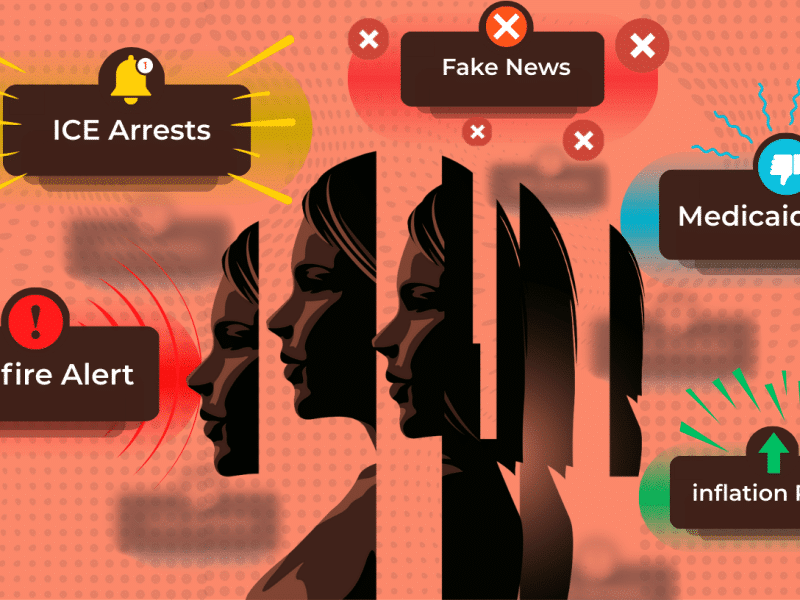Embrace Your Inner Bruja: These Mujeres are Redefining and Leading Spiritual Wellness
Us Latinas have this special link with the spiritual world, thanks to our families and ancestors. Yet some of us may need a little help exploring that connection.

This year brought several transformative spiritual portals, leaving us yearning for a profound bond with our inner selves. Perhaps you’ve delved into your inner bruja during moments of uncertainty, looked into horoscopes, or found yourself researching the significance of those angel numbers that keep showing up.
However, spirituality is much more than a quick internet search. As astrology gains popularity, we’re reminded that the Latine community has always had strong spiritual and wellness practices. Oftentimes these are passed on from our indigenous and African ancestral lines, making them a ritual that feels more like coming home than a newfound practice.
With these motivations in mind, we present a selection of seven inspiring Latina spiritual and wellness guides who offer a daily infusion of inner connection, inviting you to embark on a transformative journey enriched by their wisdom:
Brujas of Brooklyn
Dr. Miguelina Rodriguez and Dr. Griselda Rodriguez-Solomon are some of the most well-known names in the Latine spiritual community as they strive to educate and heal women using indigenous techniques. Known as the Brujas of Brooklyn, these Afro-Latinas are kicking down spiritual barriers to empower you to release your inner bruja.
Melanie Santos
Looking for a spiritual guide that also focuses on social change? Melanie Santos is your girl. From focusing on intentional living to drive social change to educating her followers on how to empower themselves using ancient and modern practices, she does it all. This is a definite follow if you’re looking for ways to utilize self-care to rebuild your spiritual foundation.
Indigemama
Panquetzani is the name of Indigemama, a jack of all trades when it comes to feminine health. Working as a holistic womb counselor and wellness coach, Panquetzani serves to educate women on seeing their womb as a sacred passageway that connects the divine and Earth through it. Ancestral healing is at the core of her teachings to achieve balance between yourself, the Earth, and your family.
Tatianna Tarot
If you’re searching for someone to guide you through the art of all that is tarot, look no further than Tatianna Morales. A Puerto Rican tarot master, Tatianna works to help you understand the value of reading your own tarot cards and using that knowledge to inspire you.
Esoteric Esa
Astrology plays a large role in some spiritual practices, so if you’re looking for an expert that is serving real knowledge on the stars and numerology, Jasmine Alejandrez-Prasad (known as Esoteric Esa on social) is your go-to. From providing knowledge about astrological cycles to better understand your life, to numerology resources, Esa is a great practitioner to help you uncover your best self.
Don’t miss Esa’s guide on making the most of lunar cycles for manifesting over at the Luz Community!
La Brujita del Jardín
As a first-gen Mexican-American, Natalie Garcia’s diverse background infuses her work with ancestral wisdom and a mission to redefine the narrative for women of color. Through her captivating writing, cosmic rituals, and professional prowess as a publicist and marketing expert, she guides others to awaken their inner magic, break down boundaries, and shine brightly as their authentic selves.
And here’s the exciting part – she’s also a contributor for the Luz Community! Immerse yourself in rituals for entrepreneurs and creative minds, designed to manifest dreams. Join her on a journey where self-love, cosmic ties, and boundless potential come together in perfect harmony.
The Tarot Queen
Emerging from Miami’s vibrant tapestry, Sisther Pravia embodies the journey of self-discovery and empowerment. Sisther’s offerings, entwining tarot, reiki healing, and intricate rituals, open pathways to embrace inner goddess vibes. With her guidance, you’ll unveil your diosa within, activate dormant intuition, and manifest dreams with renewed empowerment.
You can also catch The Tarot Queen, La Brujita del Jardin, and Esoteric Esa in the Luz Community with expanded discussions on everything from retrogrades to manifesting with lunar cycles, to manifesting and emotional healing. Registration is free and gets you all access to be able to tap into that inner bruja and divine goddess.




